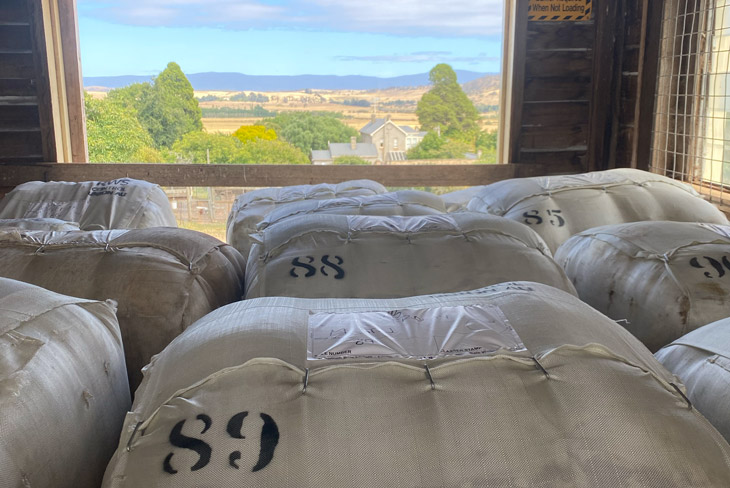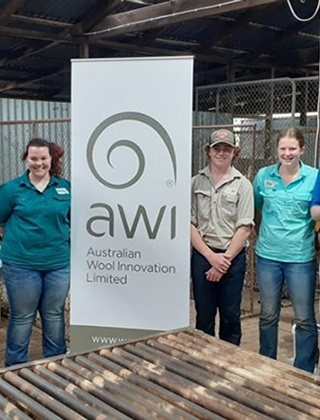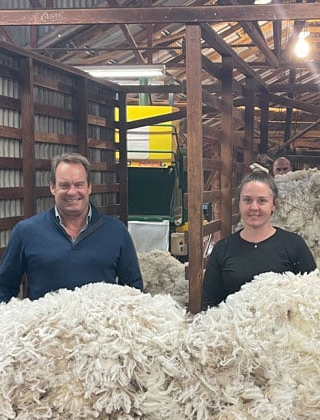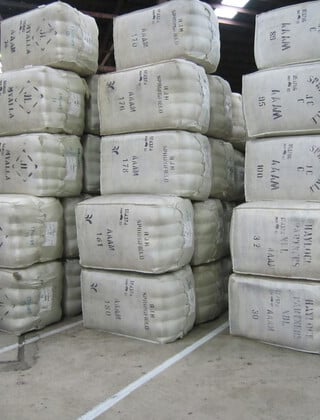Market Transparency

The National Wool Declaration (NWD) creates transparency and choice in the marketplace for retailers and suppliers wanting information on welfare.
AWI encourages retailers and brands seeking transparent information on welfare to select from the non mulesed and analgesic/anaesthetic categories, as declared on the National Wool Declaration.
This sends important market signals to woolgrowers to declare their wool, and to the Australian wool industry about demand for these types of wool.
The National Wool Declaration (NWD) creates transparency and choice in the marketplace for retailers and suppliers wanting information on welfare.
The NWD enables woolgrowers to promote their animal welfare practices and the Dark and Medullated Fibre Risk of their wool to wool exporters, processors and retailers. The NWD is the standardised declaration method for Australia and is applicable to all breeds of sheep.
Woolgrowers declare their wool as either:
- Non-Mulesed (NM - No sheep in this mob has been mulesed), or
- Analgesic/Anaesthetic treated (AA - All sheep in this mob were mulesed and treated with a registered Analgesic/Anaesthetic product at mulesing)
70.6% of Australian wool sold through auction is declared through the NWD. This proportion is increasing as more woolgrowers declare their wool.
The volume of the Australian wool clip declared through the NWD is around 960,000 bales and more than 17,000 woolgrowers have chosen to fill out the NWD.
The NWD creates transparency and choice in the marketplace for retailers and suppliers wanting information on welfare.
Commitment to Stakeholders
The wool industry continues its strong progress in addressing welfare concerns. Many woolgrowers have already replaced the traditional procedure with welfare-improved practices.
AWI works inclusively with stakeholders on the industry's comprehensive and continuing research and development program. These stakeholders include animal welfare groups; genetic and welfare scientific advisors; and the Australian sheep veterinary community.
AWI’s progress in flystrike research, development & extension is annually reviewed by the Australian Veterinary Association (AVA) and an independent panel of genetic experts. AWI is committed to providing independent and transparent progress reports to international retailers and the supply chain, and results from these reviews are regularly reported and made publicly available, including through the links on this page (Monitoring Progress in Flystrike Research, Development & Extension)
Assurance Program
In September 2010, AWEX developed an on-farm audit program for the NWD - the NWD Integrity Program (PDF 1.22Mb). This program is designed to:
- Establish the accuracy and veracity of Non Mulesed, Ceased Mulesing and Mulesed with Pain Relief NWD declarations.
- Progressively report to the pipeline the aggregated outcomes of the NWD Integrity Program.
- In the event of a non-compliance, establish how this occurred and implement corrective actions including education to prevent re-occurrence.
The Integrity Program supports the NWD by ensuring buyers have confidence in the declarations made.















